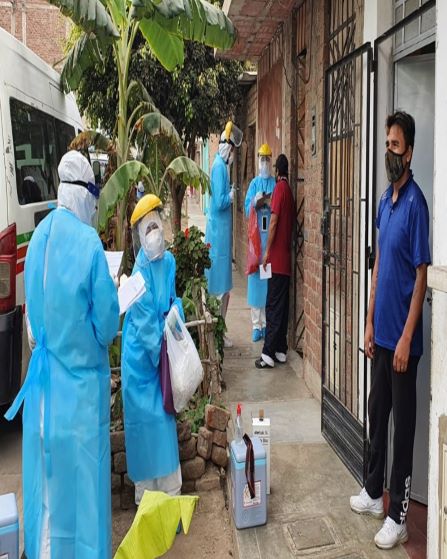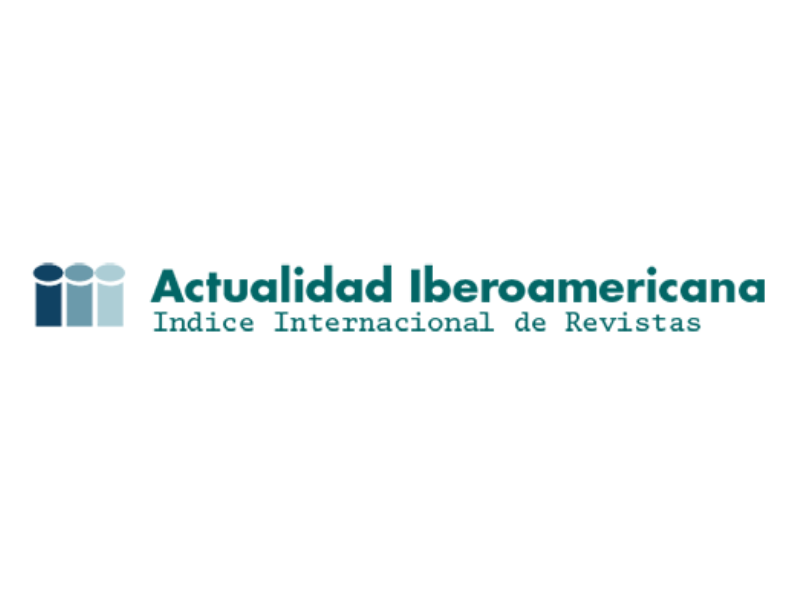Factores asociados a las actitudes y prácticas preventivas frente a la pandemia del COVID-19
Factors related to preventive attitudes and measures against COVID-19 pandemic

Mostrar biografía de los autores
Objetivo: La presente investigación tuvo como objetivo analizar si existe relación entre los factores biológicos, sociales y culturales con las actitudes y prácticas preventivas frente a la pandemia del COVID-19 en ciudadanos de Trujillo- Perú. Material y Métodos: Tipo de estudio descriptivo, de enfoque cuantitativo y diseño correlacional, prospectivo, de corte transversal. Mediante un cuestionario previamente validado se tomaron datos de ciertos factores biológicos, sociales y culturales, así como de las actitudes y prácticas preventivas frente al COVID-19 en 185 ciudadanos de Trujillo. Por encontrarnos en cuarentena debido a la emergencia sanitaria, la recolección de datos se realizó de manera virtual. Resultados: Los resultados muestran que ciudadanos de 18 a 29 años tienen actitudes inadecuas (12.4%), con prácticas preventivas inadecuadas (8.6%) y también que ser de sexo masculino constituye un riesgo para tener actitud y practica inadecuada. También existen ciudadanos que son solteros o convivientes, no tienen hijos y tienen actitudes inadecuadas (14.1%) y prácticas inadecuadas (13%). Conclusiónes: De los factores biológicos la edad y el sexo se asocian a las actitudes y prácticas preventivas frente a la pandemia, de los sociales, el estado civil y la tenencia de hijos se asocian a las actitudes y prácticas preventivas frente a la pandemia, y del cultural el tener conocimiento de la enfermedad y de las acciones a tomar se asocia con las prácticas preventivas frente a la pandemia del COVID-19.
Visitas del artículo 3311 | Visitas PDF
Descargas
- Chang D, Lin M, Wei L, Xie L, Zhu G, De la Cruz C, et al. Epidemiologic and Clinical Characteristics of Novel Coronavirus Infections Involving 13 Patients Outside Wuhan, China. JAMA. 2020; 323(11):1092-1093. http://dx.doi.org/10.1001/jama.2020.1623
- Jin Y, Cai L, Cheng Z, Cheng H, Deng T, Fan Y, et al. A rapid advice guideline for the diagnosis and treatment of 2019 novel coronavirus (2019-nCoV) infected pneumonia (standard version). Military Medical Research. 2020; 7(4). https://dx.doi.org/10.1186/s40779-020-0233-6
- Chen N, Zhou M, Dong X, Qu J, Gong F, Han Y, et al. Epidemiological and clinical characteristics of 99 cases of 2019 novel coronavirus pneumonia in Wuhan, China: a descriptive study. Lancet 2020; 395(10223):507–13. https://dx.doi.org/10.1016/S0140-6736(20)30211-7
- Palacios M, Santos E, Velázquez M, León M. COVID-19, a worldwide public health emergency. Rev Clin Esp. 2020;. https://dx.doi.org/10.1016/j.rce.2020.03.001
- Kampf G, Todt D, Pfaender S, Steinmann E. Persistence of coronaviruses on inanimate surfaces and their inactivation with biocidal agents. J Hosp Infect. 2020; 104(1):246-251 https://dx.doi.org/10.1016/j.jhin.2020.01.022
- Millán J, Rodríguez A, Camacho G, Mendoza H, Rodríguez I, Álvarez C. A new emerging zoonotic virus of concern: the 2019 novel Coronavirus (COVID-19). Infectio. 2020; 24(3):187-192. http://dx.doi.org/10.22354/in.v24i3.848
- Klaus J, Gnirs P, Hölterhoff S, Wirtz A, Jeglitza M, Gaber W, Gottschalk R. Disinfection of aircraft: Appropriate disinfectants and standard operating procedures for highly infectious diseases. Bundesgesundheitsblatt Gesundheitsforschung Gesundheitsschutz. 2016; 59:1544-1548. https://dx.doi.org/10.1007/s00103-016-2460-2
- Rodríguez A, Sah R, Paniz A, Should the Holy Week 2020 be cancelled in Latin America due to the COVID-19 pandemic?. Travel Med Infect Dis. 2020; 36:101633. https://dx.doi.org/10.1016/j.tmaid.2020.101633
- Zhai P, Ding Y, Wu X, Long J, Zhong Y, The epidemiology, diagnosis and treatment of COVID-19. Int J Antimicrob Agents. 2020; 55(5):1-13. https://dx.doi.org/10.1016/j.ijantimicag.2020.105955
- Shigemura J, Ursano R, Morganstein J, Kurosawa M, Benedek D. Public responses to the novel 2019 coronavirus (2019-nCoV) in Japan: Mental health consequences and target populations. Psychiatry Clin Neurosci. 2020; 74(1):277-83 https://dx.doi.org/10.1111/pcn.12988
- La Republica [Internet]. Casos confirmados y muertos por Coronavirus en el Perú. Lima: La República; 2020 [citado el 20 de mayo del 2020]. Disponible en: https://data.larepublica.pe/envivo/1552578-casos-confirmados-muertes-coronavirus-peru
- Ministerio de Salud del Perú [internet]. Sala Situacional COVID-19. Lima: MINSA; 2020 [citado el 20 de mayo del 2020]. Disponible en: https://covid19.minsa.gob.pe/sala_situacional.asp
- Hernández R, Fernández C, Baptista P. Metodología de la Investigación. México: McGraw-Hill Interamericana; 2010.
- Naresth M. Investigación de Mercado 4ta. edición México: Ed. Pearson Prentice Hall; 2014.
- Bolivar E, Villanueva A. Validación y confiabilidad del Cuestionario AQ-27 de actitudes estigmatizadoras hacia pacientes con esquizofrenia en un Hospital General - 2015. Rev Neuropsiquiatr. 2017; 80(3):165-171. https://dx.doi.org/10.20453/rnp.v80i3.3153
- Alhomoud F, Alhomoud F. Your Health Essential for Your Hajj: Muslim pilgrims’ knowledge, attitudes and practices regarding Middle East respiratory syndrome coronavirus (MERS-CoV) during Hajj season. J Infect Chemother. 2017; 23(1):286-292. https://dx.doi.org/10.1016/j.jiac.2017.01.006
- Jian J, Bai P, He W, Wu F, Liu XF, Han DM, Liu S, Yang J. Gender differences in patients with COVID-19: Focus on severity and mortality. Front Public Health. 2020; 8:152. https://dx.doi.org/10.3389/fpubh.2020.00152
- Albarraka A, Mohammedb R, Al Elayanc A, Al Fawaz F, Al Masryc M, Al Shammari M. Middle East Respiratory Syndrome (MERS): Comparing the knowledge, attitude and practices of different health care workers. J Infect Public Health. 2019; https://dx.doi.org/10.1016/j.jiph.2019.06.029
- Chughtai A, Seale H, Dung T, Maher L, Nga P, MacIntyre C. Current practices and barriers to the use of facemasks and respirators among hospital-based health care workers in Vietnam. Am J Infect Control. 2014; 43(1):72-77. https://dx.doi.org/10.1016/j.ajic.2014.10.009
- Roy D, Tripathya S, Kumar KS, Sharmaa N, Kumar VS, Kaushal V. Study of knowledge, attitude, anxiety & perceived mental healthcare need in Indian population during COVID-19 pandemic. Asian J Psychiatr. 2020; 51:102083. https://dx.doi.org/10.1016/j.ajp.2020.102083
- Krishnakumar B, Rana. COVID 19 in INDIA: Strategies to combat from combination threat of life and livelihood. J Microbiol Immunol Infect. 2020; S1684-1182(20)30084-0. https://dx.doi.org/10.1016/j.jmii.2020.03.024























